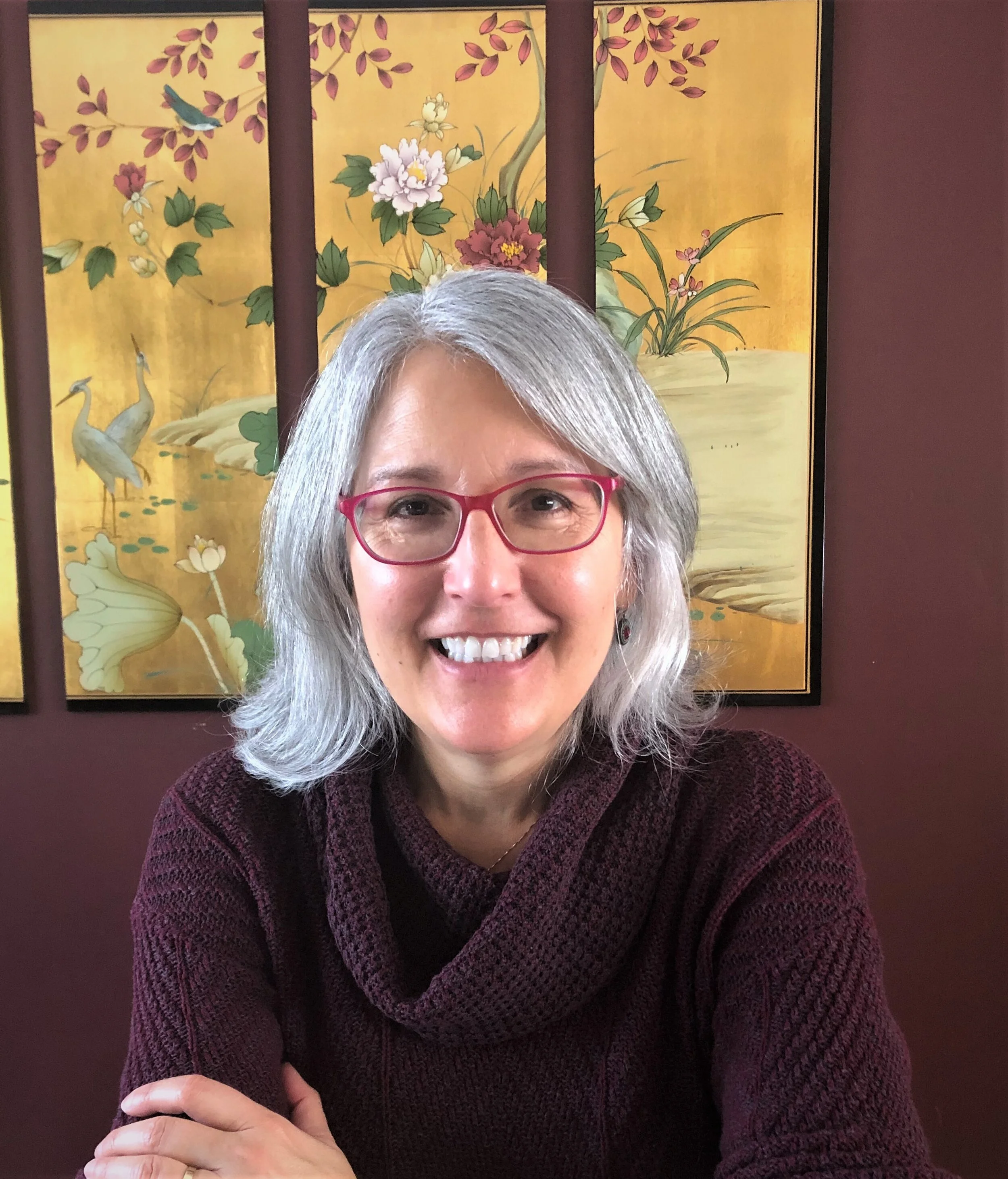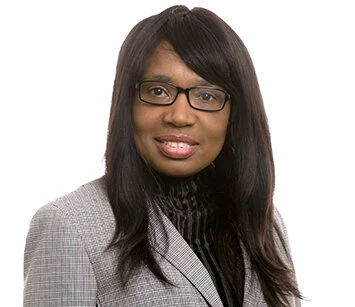Women Who Lead
Celebrating International Women’s Month with Some of Marist’s Female Leaders
Dr. Kristin Bayer in action in the classroom.
March is International Women’s Month and the perfect opportunity to honor six women who are making an impact around the Marist College campus.
In order to celebrate these women, it’s essential to address the inequities and hardships that come with being a woman — and to an even greater extent, a woman of color — in both the Marist and global communities. While there is no shortage of strong, female leaders on the Marist campus, here are six women sharing their stories, advice for younger generations, and hopes for the future.
Dr. Robyn L. Rosen - Professor of History and First-Year Seminar Director
Dr. Robyn Rosen is unapologetic, quick-witted, and honest when it comes to her experience as a woman, as well as what her gender identity means to her. “As a feminist, it’s unclear to me what the real differences are between men and women, and what are the socially constructed ones.”
Dr. Robyn L. Rosen - Professor of History and First-Year Seminar Director. Source: Robyn Rosen
Rosen said that she was sexually harassed early in her career at Marist. She wants to share that part of her experience in hopes of normalizing similar discussions. Although she expressed that she feels supported and encouraged to share her voice on our campus, she would like to see more spaces dedicated to female students, such as a special student lounge. Rosen also wants to see access to free birth control across campus. She is adamant about her stance on changing the Women’s Gender and Sexuality Studies minor to a major, as she was one of the lead voices in establishing the minor originally at Marist.
When Rosen began teaching women’s studies, she said, “There wasn’t a book that I liked, so I wrote my own.” In 2003, in partnership with Ohio State University Press, she published an introduction to women’s anthology textbook, inspired by her Ph.D. dissertation, titled Reproductive Health, Reproductive Rights: Reformers and the Politics of Maternal Welfare, 1917-1940. She shared her political interest in the topic of women’s rights, which led her to do extensive research. Through her studies, she hopes to tease out the history of two women’s movements: the fight for reproductive bodily autonomy, and the struggle for maternal and infant welfare.
Dr. Kristin Bayer - Chair of the History Department; Assistant Professor of History; Director of Women’s, Gender, and Sexuality program
Dr. Kristin Bayer - Chair of the History Department; Assistant Professor of History; Director of Women’s, Gender, and Sexuality program. Source: Kristin Bayer
Dr. Kristin Bayer is sharp and intellectual with wide-spread goals she is confident in seeing through, not only because of their importance but also because of her own passion. “As a nation we have not made a lot of progress on sexual violence on college campuses. It is not a women-only problem, it is a campus problem.” Bayer said. She advocates for a more tolerant campus, one that is openly accepting and celebratory of race, class, gender, and sexuality. “It is not enough to say ‘let’s take care of an issue specific to one group,’” Bayer said. “Start by saying, ‘let’s have a conversation among the community, to promote change that will affect all of the community.’”
Instead of sharing research of her own, she prefers to highlight the studies of her students, particularly those that engage not only on the Marist campus but also throughout Poughkeepsie. “Despite our gender identities, what I’m interested in are decency and tolerance,” Bayer said. “What are the experiences of people despite their gender identity? There are women who participate in society as a positive force and those who operate as a negative force. What can I do to create a more positive force?”
Bayer notes that she would like to see a larger focus on equity — including gender-neutral bathrooms on campus as well as the recognition and respect of differences across all identities. “We need people of color on all levels of positions and the same for women, members of the LGBTQ+ community, and differing abilities.”
Dr. Pamela J. Harper - Associate Professor of Marketing
Dr. Pamela J. Harper - Associate Professor of Marketing. Source: Pamela Harper
Dr. Pamela Harper spent a decade in corporate America prior to earning her Ph.D. “I worked hard and was promoted to manager, and in some of those cases, I was the only female and often the only person of color,” she said. When meeting with other business leaders, Harper said, “there would often be no eye-contact, and they would direct their questions to a male on my team. I needed to take extra measures to make sure my authority was going to be properly respected.”
Harper notes that within the intersection between gender and race, there is a tendency for those who look or speak differently to be underestimated. “You could become angry or bitter, or use it as an opportunity to excel,” she said. “That can actually be a blessing. I would suggest that the females at Marist, and even my younger self, take full advantage of being underestimated and work to show up and be present in terms of their voices. Make your unique perspective heard.”
Harper’s specific area of research is social responsibility and the intersection between business and society, specifically the payment of female workers and the number of women in high-ranking roles. “[In the business world], less than 20% of executives are women, less than 5% are CEOs,” she said. “Intersect that with race, and the issue becomes even more dismal.” Nevertheless, she encourages young female students at Marist to not shy away from leadership opportunities. “Benefit the team, benefit the institution, and you benefit society as a whole.”
Dr. Stacy A. S. Williams - Associate Professor of Psychology
“Typically, institutions have utilized the intellectual equity of black women, but have failed to compensate them for their intellectual equity,” Dr. Stacy Williams said. Her work in the service arena consists of mentoring faculty of color at the national level and helping them navigate predominantly white institutions. Currently, she is directing the Marist College Diversity Leadership Institute, elevating expert voices on campus.
Dr. Stacy A. S. Williams - Associate Professor of Psychology. Source: Stacy Williams
With the rightful inclusion and promotion of female and BIPOC voices comes its own obstacles. Microaggressions are common in classrooms across all institutions, especially among students who have never had a woman of color in authority. “This plays out often in evaluations,” Dr. Williams admits. “I see students targeting my personality versus targeting the class.” Dr. Williams also pointed out that evaluations are used for promotional purposes. Even indirect disrespect towards a female teacher of color on an evaluation could influence their opportunity for promotion.
In order for colleges to address these intrinsic biases of students that affect women of color, they must hire BIPOC faculty and invest in transformative, sustained diversity and inclusion plans that “permeate all aspects of the college identity,” Williams said. “Not only the POC on campus are responsible. Everyone is.”
In many instances, women of color, and people of color, feel a sense of “imposter syndrome.” They may falsely believe they’re not good enough to have a seat at the table, or that they’re only good enough to be invited, but not qualified to participate. “The colonized mind would have you questioning your worth,” Williams said. “Trust your worth, trust your instinct, trust your insights. Be the authors of your own stories. You got this.”
Colene Doughty - General Manager of Marist Dining Services
Colene Doughty - General Manager of Marist Dining Services. Source: Colene Doughty
As the director behind Marist Dining Services, Colene Doughty works incredibly hard. “As a woman, as a mother, as a wife, as a daughter, sister, and aunt, I have unique qualities I bring to every relationship that I cherish,” Doughty said. “When I’m at work, I’m driving change and excellence, making sure I am striving to touch every part of the unit and engage with our employees. “At times in my experience, a woman who exudes confidence in the workplace is often misjudged as being bossy, or the other "b-word", simply because of their gender. My advice for women and girls everywhere is to make as much noise as you can until your confidence is embraced as a strength and not as a setback. It’s all about our personhood that we bring to the workplace.”
Not only does Doughty work tirelessly for Marist Dining, but she is also a mentor of Leveraging Internal Frontline Talent (LIFT), a national mentoring program that assists frontline teams so they can move up within their respective company. This is based on a brand new peer-to-peer mentoring program that partners individuals with program managers for a sixth-month mentoring partnership. It provides workers with the opportunity to be seen as potential company leaders. Here, Doughty recognizes her ability to uplift the voices of women and people of color in the workplace. “I can give the opportunity to grow with our company, be self-sustainable with their finances, and confident in bringing their whole selves to the workplace," she said. “It’s all about paying it forward. Way forward.”
Mary Canto Rice - Assistant Director at the Center for Multicultural Affairs and the Higher Education Opportunity Program (HEOP)
Mary Canto Rice - Assistant Director at the Center for Multicultural Affairs and the Arthur O. Eve Higher Education Opportunity Program (HEOP). Source: Mary Canto Rice
Mary Canto Rice, assistant director for Marist’s Center for Multicultural Affairs, strongly believes that everyone must be brave enough to say, “I don’t know, but I want to learn.” Under CMA, there are various programs such as HEOP and ACES, as well the development of cultural programs, academic support, and continued diversity education administered to both classes and student groups. While not always at the forefront of the student periphery, the Center works endlessly to provide cultural programs across campus and ignite conversations about diversity and inclusion.
On the subject of women’s leadership, Rice spoke strongly about the lack of pay equity between men and women, citing the U.S. Women’s Soccer Team. They are an example of exemplary women who perform their jobs just as well as, if not better than their male counterparts. Yet, they are still not paid equally. “Women should be recognized for what they do and what they contribute,” Rice said.
Rice is Hispanic herself, although she admits she doesn’t look it. “My mom was Puerto Rican and my dad is Cuban. Sometimes people are surprised because I do not look like what they perceive a Hispanic person to look like. I identify and was raised as a Hispanic American, but that’s not the only thing that makes up who I am,” she said. The concept of intersectionality is a big part of what she tries to bring awareness to. “Culture isn’t just what you look like, it’s all the different aspects that make up who you are.”






